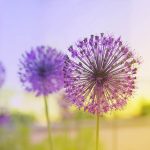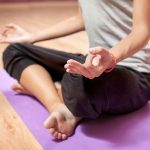What do you feel when you practice yoga? Is it hard work? Is it an indulgent time to turn inward? Is it a mixture of the two?
Asana, the physical postures in our yoga practice are not talked about much in the Yoga Sutra. The ‘bible’ of yoga. In these, Patanjali talks, in 2.46, about ‘Sthira sukham asanam’. This could basically translate, as instructing us to look for a balance of effort and ease is required in our yoga postures. Neither trying too hard or too little!! How we interpret this is so important to both our yoga practice on the yoga mat but also our yoga practice off the mat!!
Do we force what we want to happen or do we flow like water around obstacles, are we lazy in life or are we workaholics? Think about these traits both on and off our mats. This exploration between Sthira sukha in our yoga postures teaches us to strengthen areas where we are weak; to open our mind to potential space, to relax tension and practice acceptance. This practice teaches us to cultivate balance in our life, which I think we all need to practice!!
Other translations of sukha could be happiness, joy, pleasure, agreeable, gentle, mild, pleasant, playfulness, effortless. Sthira could be effort, steadfast, strength, firm. Asana can be a yoga posture, a seat, to sit down, to maintain a post, to dwell, to inhabit, to be present.
So I think about these interpretations and, I am not sure about you, but I know I want to combine all of these in my life as well as on my mat. I want the strength to be able to play, to be present in joy. Do we not want to have courage yet gentleness, strength and ease?
Its when things get tough on our mat…when you are internally pleading with your teacher to move onto an easier standing posture than Warrior 2, when your thighs are screaming as you float into a balance. This is where we practice. This is yoga. It can be tough on your mat, but it can be tough off your mat.
Our yoga mat is where we have a safe place to learn life skills. This is where we can learn to maintain a smooth breath, to focus inward not externally. This is where we learn to soften into tension, to fight our need to give up. The more we work on these skills on our mat, the easier it will be to handle the tough stuff off your yoga mat. When we are faced with challenging people or circumstances can we be present, be calm and soft. Can we be strong but gentle?
So when your yoga teacher asks you to spread your arms from the centre of your chest….. find that softness in your heart and the strength in your arms. To practice opening your arms to a difficult personal interaction. When you are grounding your feet in a Warrior posture are you learning to find strength in your legs while your upper body maintains softness in your shoulders? Can you find that strength and joy in looking at your every day life?

Sthira can mean to be strong, steady and grounded. The equal footed quality we take into standing postures. The stillness of a balance. Sthira reminds us to be committed, to find a way to show up for life, to face the tough stuff. Sthira may call for us to have integrity. To be strong enough for ourself and for others.
Sukha allows us ease, a space of contentment, effortless effort. An inner softness that feels good. This allows us to interact with ourself and with others with tenderness, a spaciousness that does not restrict or expect. Sukha allows us to reach our edge and relax there without frustration or irritation. It gives us a fluidity of movement in our yoga practice that allows us to be fluid, like water, in our lives.
Together these two terms of Sthira, sukha allow us to work towards balance. Like a tree that is rooted deep into the earth, yet the branches move gently in the wind. The leaves beautifully turning to the sunshine. Yoga is not a practice on a yoga mat, but a technique, a system, that teaches us to move more gracefully through life. It teaches us to be joyful, balanced and fluid. Being aware of this balance between effort and softness, gentle and strong, power and humility. This teaches us to be more mindfully present in life. 
